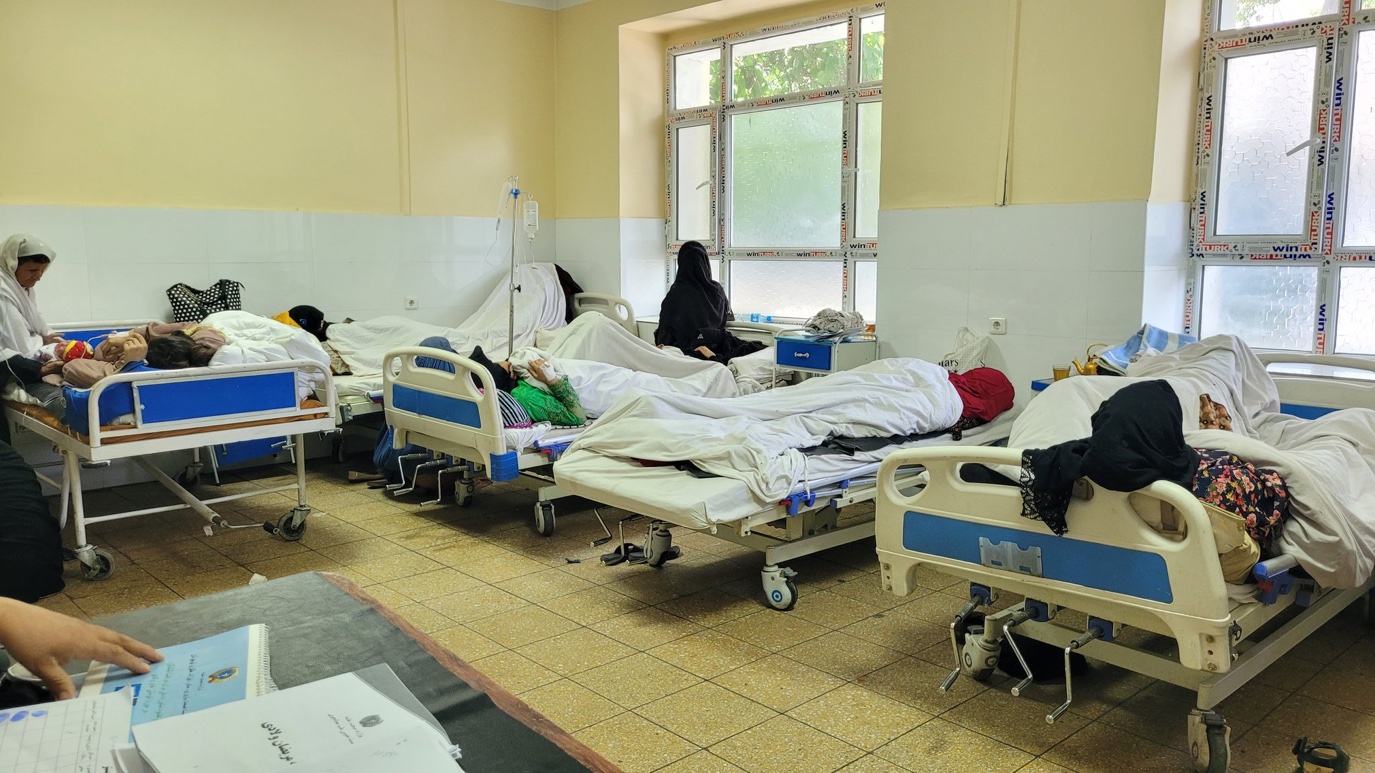Eilaat Roz | Translated by Besmellah Zahidi
Since the Taliban’s takeover of Afghanistan and the subsequent halt of international monetary aid to the country, the already fragile healthcare system has been further devastated. A lack of funding and medical expertise has made it difficult to treat diseases such as obstetric fistula.
The COVID-19 pandemic and political upheaval have had a significant impact on the provision of healthcare services, including the treatment of obstetric fistula patients. In many cases, treatment has come to a complete stop.
Obstetric fistula is a severe and distressing childbirth injury that can result in an abnormal opening between the birth canal and rectum, which can often lead to infection. In severe cases, it may cause heavy bleeding, coma, or even infertility.
A source familiar with the situation told KabulNow that the highest number of cases of obstetric fistula are found in the provinces of Khost, Ghor, Badakhshan, Baghlan, and Daikundi. The Taliban’s Ministry of Public Health has stated that the program for treating normal fistula is partly active in Kabul, but the treatment of obstetric fistula has ceased entirely.
Dr Nafisa Sahak, a public health official, has called obstetric fistula a “silent disaster.” She said that although the condition is treatable, it isolates patients and even causes them to be rejected by their families.
Obstetric fistula and other birth defects are a common and serious problem for women, especially those living in remote areas without access to health services. In Afghanistan, an estimated 1,500 women between the ages of 15 and 49 are affected by obstetric fistula each year.
The Taliban Ministry of Public Health and UNICEF report that over 1.2 million births are registered annually in Afghanistan. Of these, approximately 36,000 mothers suffer from obstetric fistula or other birth complications.
A source from the Taliban Ministry of Public Health has stated that the increasing prevalence of obstetric fistula is due to a lack of obstetrics and gynecology specialists, inadequate health services in medical centers, distance from medical centers, home births, and women’s lack of access to healthcare.
Sharafat Zaman, the spokesperson for the Taliban’s Ministry of Public Health, has stated that several healthcare projects were halted by the previous government. He said that work is underway to restart these projects.
Budget Constraints
Dr Nafisa Sahak is concerned about the shortage of resources for treating obstetric fistula in Afghanistan. She explains that the COVID-19 pandemic and the change in political leadership have resulted in the closure of obstetric fistula treatment centers in Herat and Nangarhar, and the facilities in Kabul are only partially operational due to lack of funds.
Sahak expressed her disappointment, noting that among the fistula treatment centers located in Kabul, Nangarhar, and Herat, only the one at Malalai Hospital remains operational, but it lacks adequate facilities. Previously, Cure International Hospital provided repair and treatment operations for fistula patients, but they no longer offer these services.
Additionally, the United Nations Population Fund (UNFPA) has reduced its support for the obstetric fistula treatment program in recent years, making it increasingly difficult for women with birth defects in Afghanistan to access treatment for obstetric insufficiency and anomalies, abnormal births, and obstetric fistula.
Lack of specialized staff
In addition to financial challenges, a shortage of skilled personnel is hindering the treatment of obstetric fistula patients in Afghanistan. Dr Sahak notes that medical centers across the country, especially those specializing in fistula treatment, lack qualified and trained staff to perform repair operations.
Insider sources reveal that experienced staff members have either left their posts or fled the country, leaving only a limited number of specialists in Kabul. Some female doctors have resigned in protest against the Taliban’s oppressive policies, which restrict women’s rights to work and study.
As a result, a significant number of healthcare professionals have been forced to remain at home, negatively affecting various sectors. Reports indicate that the Taliban has harassed many female healthcare workers, further discouraging them from working in the healthcare sector.
The suspension of UNFPA’s support for the health sector has also led to a lack of necessary funding from the Ministry of Public Health, which reportedly averages around $2,300 for treating obstetric fistula.
Women afflicted with obstetric fistula are at times abandoned by their families and ostracized by their society, according to Dr. Mohammadi, a health specialist at the Ministry of Public Health. Out of every 100,000 births in Afghanistan, 638 mothers succumb during childbirth, and of those, five pass away due to obstetric fistula.
The spokesperson of Taliban’s Ministry of Public Health denies any negligence or cover-up and asserts that no physician has abandoned their duties. He claims that the Ministry has even employed 6,000 new doctors, half of whom are women, and that 200 health centers and 500 mobile teams are working to provide healthcare services to remote areas that lack access to healthcare facilities. However, some reports suggest a significant decrease in health services, which the official of the Taliban regards as biased and unfounded.




